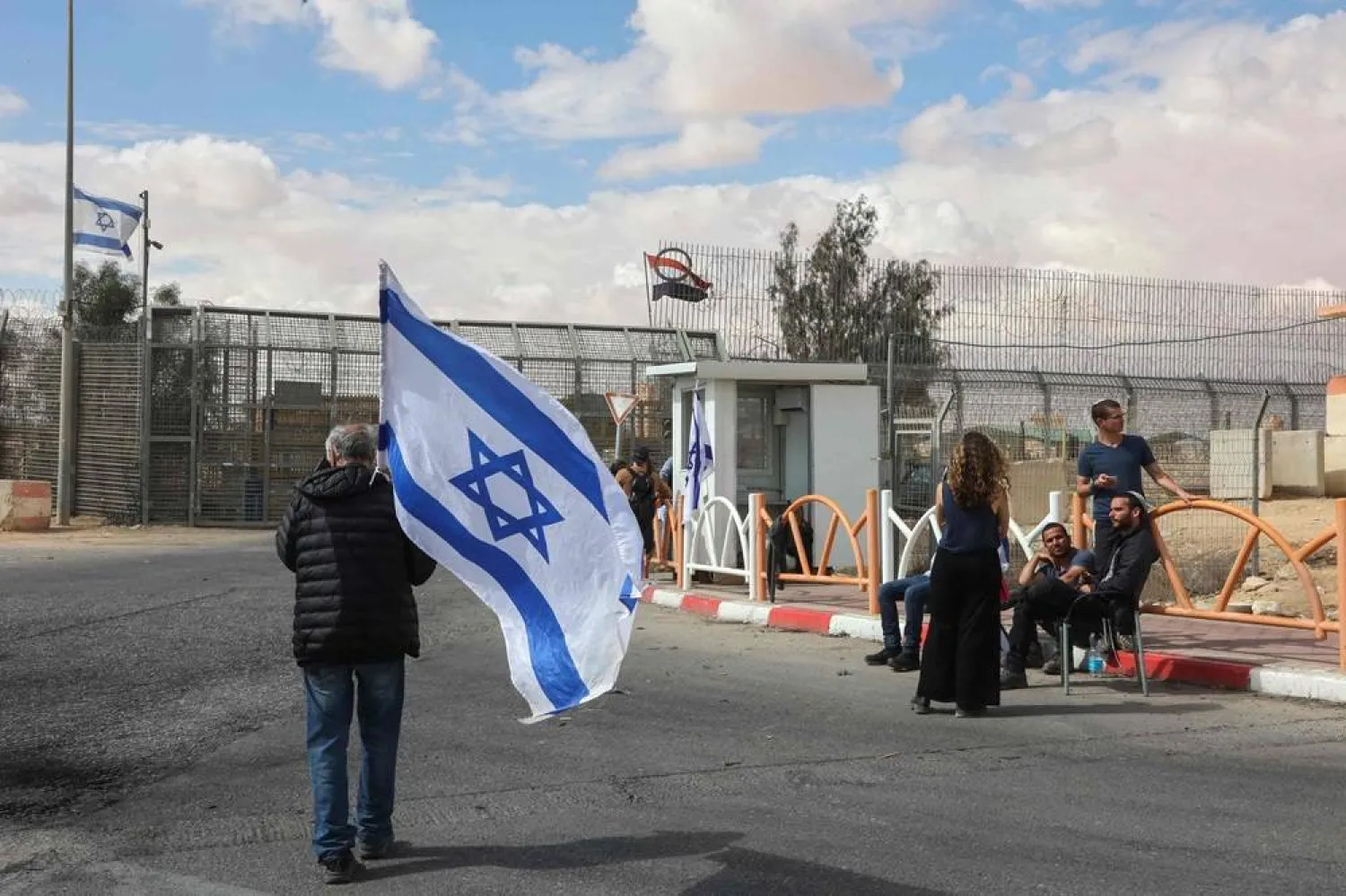Even as the threat of famine stalks the war-ravaged Gaza Strip, Israeli protesters have gathered repeatedly to stop desperately needed aid from getting into the Palestinian territory.
"You might say it's not acceptable to block food and water going in," said one protester, David Rudman, at the Nitzana border post between Israel and Egypt.
"But, given the situation we're in, it's acceptable," he argued as the Gaza war, siege and hostage crisis have continued into a fifth month.
The latest protest on Sunday came as Hamas threatened to suspend talks to free hostages unless more aid gets in.
Despite those threats, just over 100 people gathered at Nitzana, where the Egyptian Sinai meets Israel's Negev desert, with some saying they were hoping to pile pressure on in a bid to free the captives.
Rudman, 35, drove three hours from Jerusalem to prevent food, fuel and medicine from getting into Gaza, which Israel has been shelling since Hamas's October 7 attack.
Undeterred by concrete blocks across the road and armed soldiers on patrol, the protesters reached the terminal where aid from Egypt is checked before the trucks continue towards Gaza.
As a result, trucks waiting on the Egyptian side were unable to cross into Israel.
"Our aim is to get the hostages back," said Rudman.
"There hasn't been any progress for weeks, and you're going to see more and more people coming here," he predicted.
Despair
The war began with Hamas's attack that resulted in about 1,160 deaths in Israel, mostly civilians, according to an AFP tally of official Israeli figures.
Israel's retaliatory campaign in Gaza has killed more than 29,000 people, mostly women and children, according to the territory's health ministry.
Some 300,000 people remain in northern Gaza, where increasingly desperate conditions have forced some to grind bird feed for flour.
A first truce at the end of November saw the release of 108 hostages out of the more than 250 kidnapped by Hamas on October 7. Israel says 130 captives are still in Gaza but 30 may be dead.
"One of my best friends is a hostage in Gaza," said Rudman, without naming the captive. "We hope he's still alive in Gaza but we don't know for sure.
"It makes no sense at all. On the one hand we give them water, medicine and food but on the other we don't even have a list" of who is being held and their condition.
Families of the hostages have taken to the streets every week to push the Israeli government to accept a deal for their release.
This weekend said they would block the terminal at Nitzana or one further north at Kerem Shalom.
But at Nitzana on Sunday only one member of the hostages' families turned up and refused to talk, out of fear of reprisals for those being held.
'Unhumanitarian' aid
A survey for Israel's Channel 12 television at the end of January suggested 72 percent of Israelis believed Gaza should not receive any aid while hostages are still being held.
The UN says the protests at Nitzana and Kerem Shalom are blocking trucks from going into Gaza, hitting dwindling stocks.
The Palestinian Red Crescent Society on Sunday evening said 123 trucks made it into Gaza via Kerem Shalom, but none had passed through Nitzana because of the protest.
Nili Naouri, head of the far-right group "Israel is Forever", said that "it's completely immoral to force Israel to send humanitarian convoys of trucks to people that support Hamas, who are holding our people hostage, and are collaborating with the enemy".
On Sunday, members of the organization turned up to block aid, calling it "unhumanitarian".
"Hamas aren't going to gladly free our hostages if we allow aid trucks in for the civilian population of Gaza," said Naouri.
Her solution is simple: "Let Gazans leave Gaza" if they want help from the international community.
Hamas, she charged, diverts aid for its own ends.
Some 1.4 million Palestinians have been sheltering in Rafah in the far south of Gaza, many having been displaced several times in a bid to find safety since the start of the war.
With neighboring Egypt repeatedly rejecting the mass displacement of Palestinians, they have nowhere to go as Israel's planned ground offensive of Rafah looms.
But David Ickowicz, 39, a regular at the aid blockades, is convinced that his "civil disobedience" serves a purpose.
"Hamas's leaders live in the tunnels. But to live underground and breathe oxygen you need electricity produced by fuel," he reasoned.
"Cut off fuel supplies and we'll get them out of the tunnels."









